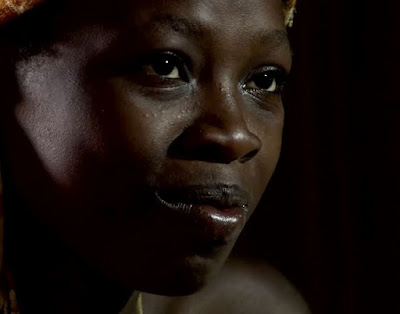 |
| Photo: Robin Hammond, JSIMAHEFA Program USAIDMadagascar |
Communicating information and delivering basic health related supplies, some as simple as soap, are huge first steps in battling disease and even death in small rural communities.
Our partner in Madagascar is focused on providing health services across six remote regions in north and northwest Madagascar. This program is known locally as MAHEFA, a USAID-funded project.
Over the course of the program 6,052 community health volunteers (CHVs) were trained, equipped, and supervised to provide basic health services in the areas of maternal, newborn, and child health; family panning and reproductive health, including sexually transmitted infections, water, sanitation, and hygiene; nutrition; and malaria treatment and prevention at the community level.
Community health volunteers play a critic role in providing health services, especially to women and children. CHVs provide antenatal care, deliver vaccines, teach about proper nutrition and sanitation practices, among other family planning services.
The biggest obstacle for these CHVs is reaching the families who depend on them for basic health services. The primary challenge identified through MAHEFA was one of transportation.
Almost half of the villages in this region are inaccessible by motor vehicle for at least four months of the year due to the rainy season. One fifth are inaccessible for nearly half the year, placing residents at risk. While public transportation does exist for some areas, at some times of the year, it is frequently insufficient, unreliable, and/or expensive. As their title suggests, CHVs work on a voluntary basis and therefore receive no compensation to offset travel expenses.
The solution: bikes. MAHEFA provided 1,020 new bikes to select CHVs in 220 communes. They also received training in safe riding, management, maintenance, and repair of bicycles.
The effort to supply bikes was to solve several issues in providing care in these remote areas. Assisting CHVs in transportation to patients, medical supplies, and support meetings were key aspects of the program. Additionally, providing an incentive to CHVs, working long hours for free, was also a priority.
CHVs reported being able to visit patients more frequently and also further distances away, while still saving themselves time and energy. The cost of transportation also dropped significantly. Whereas before CHVs would hire a taxi or ox cart they could now ride a bicycle for free.
An unintended response came from patients who ended up respecting caregivers arriving on bicycle more than those on foot. In Menabe women perceived that CHVs who arrived at their homes on bicycle were providing services of higher value. The social status of CHVs soared just by owning a bicycle. This also increased the CHVs motivation level to perform their jobs.
 |
| Menabe eBox |
MAHEFA identified four of these regions in which to place accessible bike shops, called eBoxes. An eBox is often staffed by CHVs, providing an even greater incentive by offering a salary to those employees. Used bikes donated from the UK and USA (Bikes for the World) were delivered to these eBoxes along with a supply of used parts.
These micro enterprises assist CHVs with parts and repairs of their bicycles. The shipments of used bikes from overseas also help fund the shops as well as contribute to the health related activities of the communes. Bikes for the World sent its second shipment of bikes to this project just last week.





























